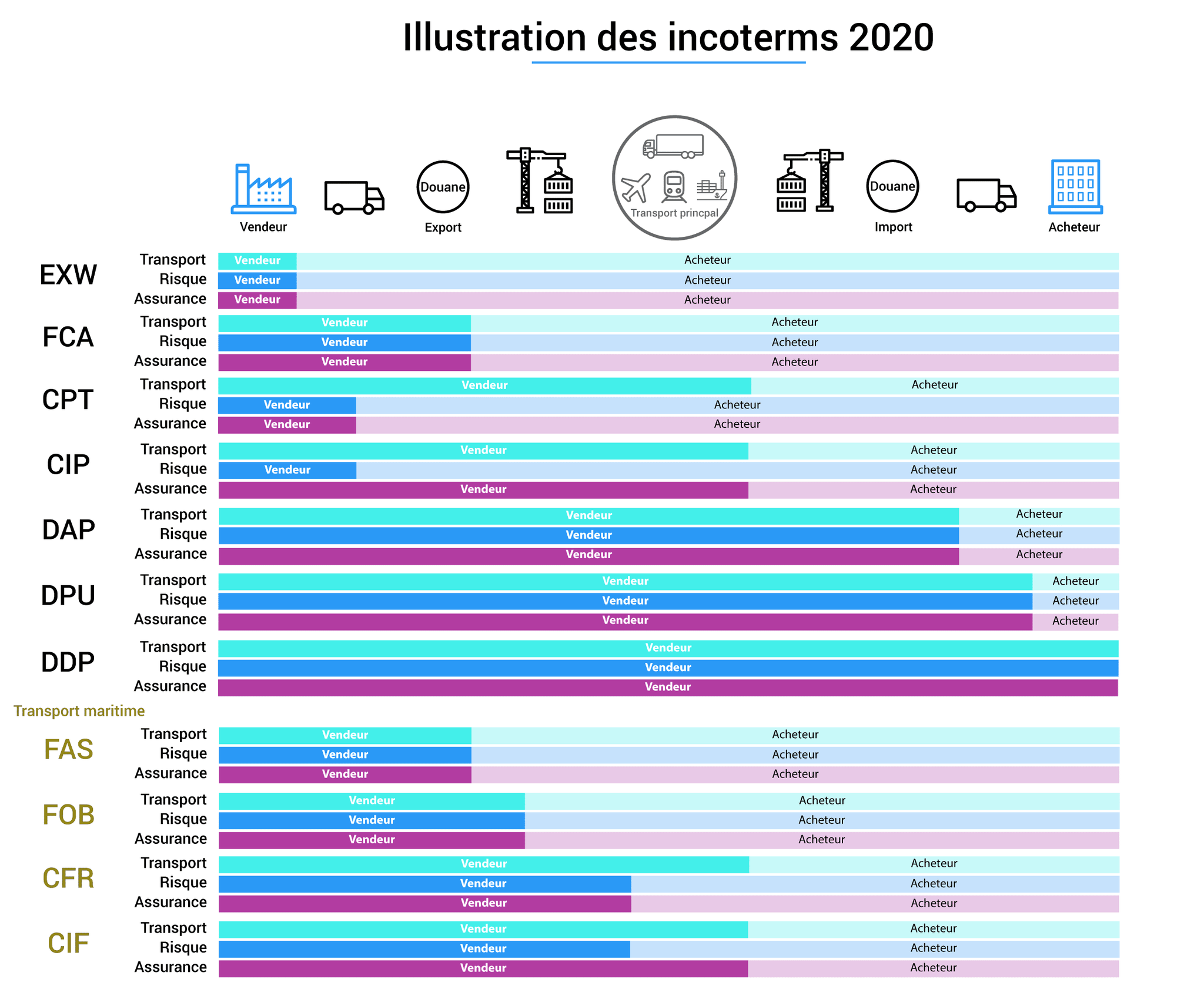The incoterms define the responsibilities and obligations of a seller and a buyer in the following areas: loading, transport, delivery of goods and the formalities and charges (insurance) related to these operations. More specifically, they show the place where the risks are transferred.
In case of damage at a given moment of transport, which will have to bear the costs related to the damage between the seller and the buyer?
In case of damage at a given moment of transport, which will have to bear the costs related to the damage between the seller and the buyer?
The 2020 version contains the following international trade terms:

All modes of transport
The exporter makes the goods available to the importer at the exporter’s premises or at another designated place (i.e. construction site, factory, warehouse, etc.). This condition represents the minimum obligation for the exporter.
The exporter delivers the goods to the carrier designated by the importer at the agreed location, for example, container terminal.
The exporter chooses the mode of transport and pays the freight for transport of goods to the agreed destination. It clears the export goods.
The exporter has the same obligations as in CPT, but he must also provide insurance against the risk of loss or damage to the goods during transport. He clears the goods for export.
The seller is responsible for the customs clearance of the goods for export and bears all risks and costs associated with the delivery of the goods and the discharge at the port or designated destination.
The exporter must deliver the goods by making them available to the buyer on the means of transport’s approach, ready for discharge at the agreed place (if specified), at the named place of destination. The seller assumes the risks related to the transport of the goods up to the place of destination.
The exporter shall bear all costs, including customs clearance on import and payment of duties and payable taxes up to the agreed place, the goods ready to be discharged.
Shipping
The exporter fulfilled its delivery obligation when the goods were placed alongside the ship on the platform at the port of embarkation. He has an obligation to clear the goods for export.
The exporter shall place the goods aboard a vessel at the designated port and bear all the resulting costs up to the agreed point.
The exporter shall bear the costs and the fees of necessary sea transport to transport the goods from the port of embarkation to the port of destination.
The exporter has the same obligations as in the CFR, but he must also provide maritime insurance against the risk of loss or damage to the goods during transport. He has to deal with the export formalities.

